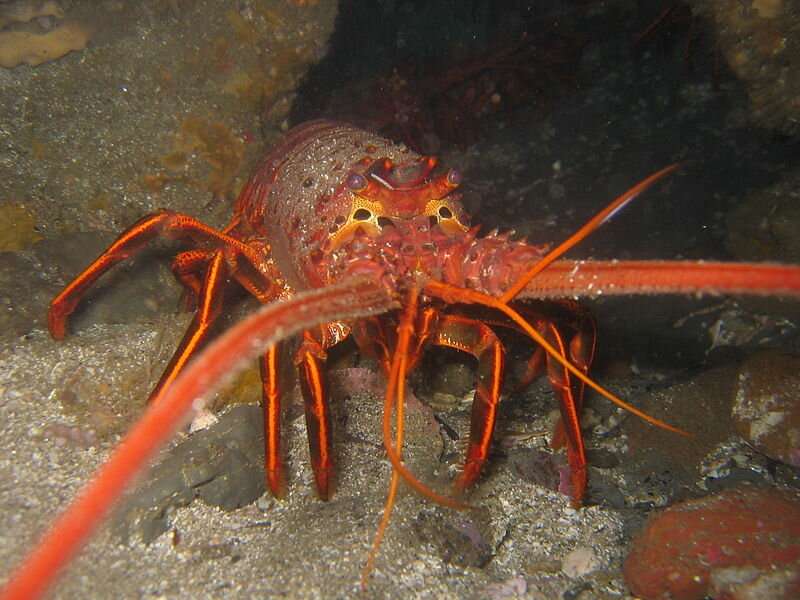California spiny lobster (Palinurus interruptus). Picture taken by Magnus Kjærgaard in La Jolla, California. Creative Commons Attribution-Share Alike 2.5 Generic
A team of researchers with the University of Tasmania and Curtin University has found that seismic air guns used for oil and gas exploration can damage a sensory organ in rock lobsters called the statocyst, which provides balance and orientation. In their paper published in Proceedings of the Royal Society B, the group describes tests they conducted with lobsters in their lab and what they found.
Prior research has shown that human-created noise can have unexpected impacts on creatures that live in the sea—sonar used by submarines, for example, has come under fire for disorienting whales. In this new effort, the researchers have found that seismic air guns used by survey teams looking for oil or gas deposits can result in damage to the balance organ in rock lobsters.
Seismic air guns are devices that release pressurized blasts of air into ocean water—the blasts are strong enough to penetrate the ocean floor, where they propagate as seismic waves. Exploratory teams pull a host of such devices behind a boat, setting off numerous blasts as they travel. As they do so, technicians aboard the boat monitor sensors that take readings of the impact of the blasts on the seafloor hoping to find oil or gas deposits. The blasts from seismic air guns have been described as the loudest human-made sounds in the ocean.
To better understand what impact the seismic air guns might have on rock lobsters, the researchers collected several specimens and brought them into their lab for study. They note that in the water, seismic blasts create low-frequency sound waves. To test the impact of the seismic air guns on the lobsters, the researchers piped low-frequency sound waves into their tanks at the same low frequency as those created by seismic air guns. They then examined the lobsters, looking for possible impacts. They report that they found damage to the statocyst—a small organ made of statoliths. The purpose of the organ is to allow the lobster to keep its balance and to assist with orientation. They further report that due to the damage, the lobsters had difficulty righting themselves if turned over. They also noted that the damage remained for the duration of the study, which was a whole year.
More information: Ryan D. Day et al. Seismic air guns damage rock lobster mechanosensory organs and impair righting reflex, Proceedings of the Royal Society B: Biological Sciences (2019). DOI: 10.1098/rspb.2019.1424
Journal information: Proceedings of the Royal Society B
© 2019 Science X Network






















